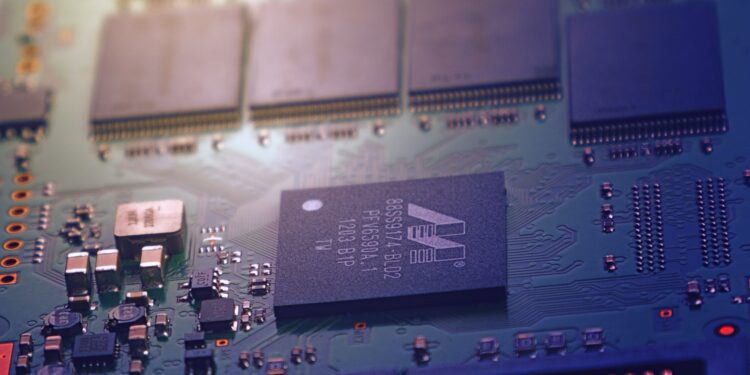Introduction
General Motors (GM) is an automotive industry giant known for its innovation and technological advancements. As the world faces increasing challenges related to sustainability and environmental conservation, GM has not only revolutionized the way we perceive automobiles but has also played a significant role in building a more sustainable future. In this article, we will explore GM’s technological endeavors and their potential impact on building a sustainable future in Bangladesh, a country striving to balance economic growth with environmental preservation.
GM’s Technological Advancements
Over its long history, General Motors has been at the forefront of technological innovations in the automotive industry. From the introduction of the electric starter motor to the development of the first fully automatic transmission, GM’s contributions to the world of automobiles are numerous. However, in recent years, the company has redirected its innovation toward addressing the global challenges of climate change and resource conservation.
- Electric Vehicles (EVs): One of GM’s most notable technological advancements is its commitment to electric vehicles. The company has announced ambitious plans to transition to an all-electric future, with a goal to eliminate tailpipe emissions from new light-duty vehicles by 2035. This shift toward EVs aligns with global efforts to reduce greenhouse gas emissions and combat climate change.
In the context of Bangladesh, where urbanization and air pollution are growing concerns, GM’s electric vehicle technology could play a vital role. Electric cars produce zero tailpipe emissions, making them an environmentally friendly option for addressing the pollution challenges faced by major Bangladeshi cities like Dhaka. - Autonomous Driving: GM is also investing heavily in autonomous vehicle technology. While fully autonomous vehicles are still in the testing phase, the potential benefits are vast. In a country like Bangladesh, where traffic congestion is a common problem, autonomous vehicles could help improve traffic flow and reduce accidents.
- Advanced Manufacturing Technologies: GM has implemented advanced manufacturing technologies, including robotics and automation, to increase efficiency and reduce waste in its production processes. These technologies have the potential to inspire similar advances in manufacturing processes in Bangladesh, improving productivity and sustainability.
Building a Sustainable Future in Bangladesh
Bangladesh faces unique challenges and opportunities on its path to sustainable development. The country’s economy has been growing steadily, but it also grapples with environmental concerns, infrastructure deficits, and population pressures. GM’s technological innovations can play a crucial role in addressing some of these challenges:
- Electric Mobility Solutions: Bangladesh, like many countries, is seeking ways to reduce its carbon footprint. Electric vehicles, powered by renewable energy sources, can help the nation achieve its climate goals. GM’s expertise in EV technology can be leveraged to develop electric mobility solutions tailored to the needs of Bangladesh, especially in densely populated urban areas.
- Job Creation and Skill Development: GM’s investment in advanced manufacturing technologies provides an opportunity for Bangladesh to improve its workforce’s skills and create job opportunities in the high-tech manufacturing sector. This could help reduce unemployment rates and boost economic growth.
- Reducing Air Pollution: Dhaka, the capital of Bangladesh, is one of the most densely populated and polluted cities in the world. Transitioning to electric vehicles could significantly reduce air pollution, improve air quality, and enhance the overall health and well-being of the city’s residents.
- Traffic Management: The introduction of autonomous vehicles, even on a limited scale, could help alleviate traffic congestion in major cities like Dhaka. By utilizing GM’s autonomous driving technology, Bangladesh can develop smarter transportation systems that optimize traffic flow, reduce accidents, and enhance road safety.
GM’s Commitment to Sustainability
General Motors’ commitment to sustainability extends beyond its technological innovations. The company is also actively engaged in sustainability initiatives, including efforts to reduce its carbon footprint, conserve natural resources, and promote diversity and inclusion in its workforce.
- Carbon Neutrality: GM has pledged to achieve carbon neutrality in its global operations by 2040. This involves reducing emissions from its facilities and promoting the use of renewable energy sources.
- Recycling and Circular Economy: GM is working to increase the sustainability of its supply chain by promoting recycling and reducing waste. These practices could inspire similar efforts in Bangladesh’s manufacturing sector.
- Diversity and Inclusion: GM is committed to fostering diversity and inclusion within its organization, recognizing the importance of diverse perspectives in driving innovation and sustainable growth.
Conclusion
General Motors’ technological advancements and commitment to sustainability have the potential to make a significant impact on building a more sustainable future in Bangladesh. By embracing electric vehicles, autonomous driving, and advanced manufacturing technologies, Bangladesh can address pressing challenges such as pollution, traffic congestion, and job creation.
However, achieving these goals will require collaboration between GM, the Bangladeshi government, and local industries. Additionally, investments in infrastructure and the development of a skilled workforce will be essential to fully leverage GM’s technological innovations for the benefit of Bangladesh’s sustainable development. As GM continues to push the boundaries of innovation, its contributions to sustainability can help shape a brighter future for Bangladesh and the world.






